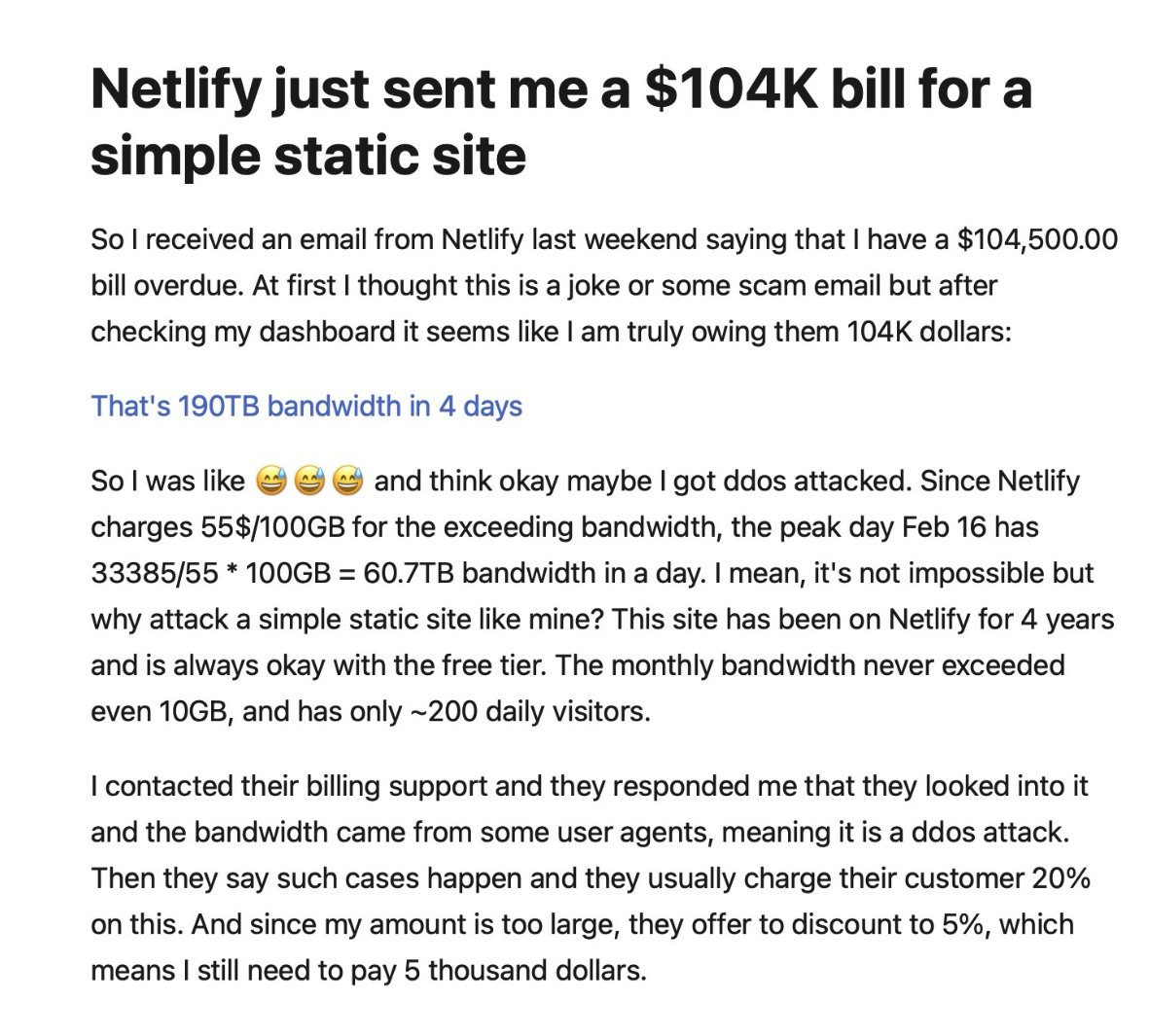this post was submitted on 28 Feb 2024
330 points (100.0% liked)
Technology
39764 readers
719 users here now
A nice place to discuss rumors, happenings, innovations, and challenges in the technology sphere. We also welcome discussions on the intersections of technology and society. If it’s technological news or discussion of technology, it probably belongs here.
Remember the overriding ethos on Beehaw: Be(e) Nice. Each user you encounter here is a person, and should be treated with kindness (even if they’re wrong, or use a Linux distro you don’t like). Personal attacks will not be tolerated.
Subcommunities on Beehaw:
This community's icon was made by Aaron Schneider, under the CC-BY-NC-SA 4.0 license.
founded 3 years ago
MODERATORS
you are viewing a single comment's thread
view the rest of the comments
view the rest of the comments

Yeah that's is an attack on Netlify and not on him. It's them that should have protections against this. I argue that the customer can't even effectively defend against this themselves if they're using Netlify, which is turn means a court would likely get them off the hook for anything that can easily be classified as a DDOS attack.
Hm yes and no. The user might have angered someone with their website and it might well have been targeted to them instead of Netlify as a whole? I can imagine them using that point in a court if that was the case.
If I were to host on such a service I'd probably put cloudflare in front. Especially as it seems to be static content. But I wouldn't host on a service with unlimited pricing anyway. I'd much rather see my hobby site go down than to have world-class uptime and pay 100k :P
But how do you go from 10GB monthly to 190TB without it raising any flags? Apparently their site had been up for 4 years and suddenly the usage spikes by nearly 2 million percent, and nobody thinks to check up on why, or to notify the user that they're using an extreme amount of data, way beyond what they usually do.
You’d think a competent company would have bots to scour this data and raise alarms, yet here we are.
Hell even AWS isn't this bad. You can go in and set the maximum data you're prepared to allow and then it'll simply just block any connection attempt after that point and send you an alert.
You just have to be aware that you might need to keep an eye on things and be ready to increase bandwidth occasionally in case of something like Black Friday, assuming that kind of thing is relevant to your site.
They wouldn't really get anywhere with that claim though, even if it were true and they could find evidence, because the company claims that they actively scan for and protect against this sort of thing, and even they admit that it was a DDoS attack.